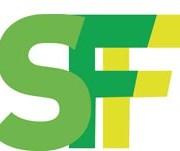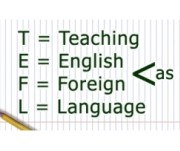With such a baffling amount of (often conflicting) information on the internet about TEFL and TEFL training courses, it can be difficult to clarify where TEFL can take you and what you need to do to get there.
This set of ‘top 10 FAQs’ should help dispel some of the myths and mysteries:
1.What is the difference between TEFL, CELTA and TESOL?
TEFL is a generic term used to describe the industry you would be working in – teaching English as a foreign language. In order to gain access to this industry, there are two key qualifications which stand out as being quite special in their international recognition – the Cambridge CELTA (Certificate of English Language Teaching to Adults) and the Trinity College Cert TESOL (Certificate in Teaching English to Speakers of Other Languages).
2.Will a 2-day/one week course give me a certificate in teaching EFL?
Courses such as these do award a certificate of completion, however it is important to recognise that it is not the TEFL qualification that a lot of employers will require. When prospective employers ask, ‘have you got a TEFL certificate?’ what they are usually referring to is the Trinity Certificate TESOL, the Cambridge CELTA or a certificate gained from doing a course of equivalent length and value as these two.
The weekend course, however, is ideal if you want a basic introduction to TEFL, if you are looking to teach on a very informal basis, or if the kind of teaching that you are planning to do is voluntary. These types of courses are particularly beneficial to anyone who is looking to do a few months travelling, and perhaps pick up some casual work along the way. If you are looking at teaching as a way to totally finance your new life abroad it would definitely be wiser to do a more internationally recognised qualification as this will give you much more flexibility with regard to what schools you can work for, and in which countries.
If you are considering a very short course, such as a weekend TEFL course, you can always opt for extra modules to further increase your knowledge, such as the English Language Awareness Course.
3.Does it matter if my four-week course isn’t accredited by Cambridge ESOL or Trinity College?
There are many courses available today that have a similar syllabus and the same duration as say, a CELTA or a Trinity Cert TESOL course. The main difference really is that whilst a CELTA and Trinity Cert TESOL are provided by the Cambridge exam board and Trinity college exam boards respectively, ‘other’ four-week courses tend to be moderated and validated by the school that offers them itself.
Even though the course may not have the same global prestige as a CELTA or Trinity Cert TESOL, you should still be able to find work with it. Any course which involves at least 100 hours of input and six hours teaching practice is recognized under the British Council recognition scheme as a TEFL-initiated program. The main areas where you might lose out to CELTA or Trinity Cert TESOL trained teachers are those where competition for jobs is very high, or there is an overriding preference for the Cambridge/Trinity College qualifications (e.g the UK and Australia).
On the plus side, many of these ‘other’ four-week programs do have strong local employment prospects for trainees. They also often have interesting extras, such as training in the local language, or excursions to local tourist sights. They can be especially useful if you are looking to teach EFL for a fairly short period (six months/one year) and specifically in the place that you train.
4.Why do CELTA/Trinity Cert TESOL courses vary so much in price?
There can be quite a substantial price difference for the same course from school to school. Basically, each school sets the price of its Cambridge CELTA or Trinity Cert TESOL course itself. The price reflects factors such as the school’s costs and overheads, the facilities available for trainees, the length of experience and terms and conditions of the teacher trainers and also the level of prestige associated with the school.
At the end of the day, though, all schools are moderated and assessed rigorously to ensure that they conform to minimum requirements and standards of tuition as laid down by their respective external examining bodies.
In this sense it can be argued that a CELTA is a CELTA and a Trinity Cert TESOL a Trinity Cert TESOL irrespective of where you train. Many people therefore choose their course based on factors such as the price, the convenience of the location and course dates.
If, on the other hand, you are the kind of person who finds it important to have that little bit extra, in terms of the quality of the surroundings and the facilities, the reputation of the course providers or the extensive experience of your trainers, then it might well be worth paying more for your course.
5.Will I need to speak to local language to apply for a CELTA/TESOL course abroad?
The answer is no. On a CELTA or Cert TESOL, you are trained to teach English using only the English language. This is the case whether you are working with absolute beginners, or advanced level students. A clear reason for this is that when you are teaching English to international groups in the UK, it is actually impossible to start translating vocabulary and bits of the lesson into each student’s language. It is also very much a part of the TEFL ethos to stay in the target language. It also encourages you to find new, creative ways of getting across meaning – maybe through mime, drawing, using visual aids or real objects in class, or using other students to explain to their peers in English. There is almost always a way around having to use the student’s own language.
When you are teaching monolingual groups abroad, there is more of a temptation to use their language to help explain, and frequently older language learner feel more secure if you can translate for them. But you won’t help your own technique if you do, and the minute you move to another country whose language you don’t speak, you are likely to feel at a loss. Having said that, your stay abroad is obviously about more than teaching English all day every day. You are hopefully going to want to get to know some locals, blend into the culture, or at least be able to order a few beers and make elementary requests in shops. If you are to practise what you preach, it’s of huge personal advantage if you can speak even a little of the local language.
6.I am already an experienced teacher – should I do a CELTA/Trinity Cert TESOL course?
Much of the decision about whether you need to gain a specific TEFL qualification will depend on where you are looking to teach. You might find that in certain countries your existing qualifications and experience are enough to secure you work, but in others (particularly where the market is competitive such as the UK, Spain and Italy) you might struggle without an internationally recognised TEFL qualification under your belt.
As the basic ‘industry standard’ qualifications, the CELTA or Trinity Cert TESOL would be best to get you up and teaching English as a foreign language. Although you might consider that parts of the course will be irrelevant for you because you have already got a lot of teaching experience, you will probably still find it beneficial to do the course. Because the CELTA/TESOL courses run so frequently they are constantly revised, changed and updated with most recent teaching methodologies. Also the experience of learning to teach English as a foreign language will provide you with a lot of very interesting insights in the English language that will help you in your teaching career. Many teachers with teaching experience apply to CELTA/TESOL courses and due to their experience they usually make very good candidates.
7.What can I achieve with an online TEFL course?
Online or Distance TEFL courses are the most flexible way of learning about TEFL. You can do them in your own time and at your own pace. All online TEFL courses will cover roughly the same content, including planning classes, class management, skills and language work and activities to use with your classes.
While it is possible to study in depth about TEFL online and by correspondence, you do not get any teaching practice, and it is this fact which leads many employers to view these courses as inferior to 100 hour, face-to-face courses with teaching practice such as the Cambridge CELTA or Trinity Cert TESOL,
However, if you cannot find the time or the money to follow a longer course, and if you want to work in countries and contexts where formal qualifications are not required to teach English, or your aim is not necessarily to earn your living from teaching or teach in a formal setting or for any length of time, these qualifications are a great idea.
They also serve as useful ‘refresher’ courses for people who have taken TEFL training in the past, and need to get their teaching skills back up to speed.
8.What happens if I’m a mature applicant – can I still do the course/get work?
The impression given by the industry websites and many forums which discuss TEFL issues is that TEFL is an industry designed for the younger generation.
Generally speaking, the reason that TEFL seems to attract 20-something teachers fresh out of University is that pay and conditions in the TEFL industry are not particularly well-regulated. This means that it is generally the younger generation who, wanting the experience and excitement of living away from home, are not too much concerned about the money they receive or the hours that they work.
However, if you are flexible and open-minded, and you’re not intent on earning a fortune, then TEFL is arguably more suited to more mature teachers. As far as employers are concerned your wealth of experience will probably mean that you are more at ease with groups and individuals from diverse walks of life, and you will better relate to, for example, the life issues that students face. Also, a more senior teacher may have the business experience and knowledge which comes in very handy for a school’s company clients, who will not take too kindly to a very young teacher without much life experience.
There will of course however, be specific situations where schools will prefer younger staff, for example during summer residential programmes where students tend to be in their teens. There are also certain countries where you are unfortunately quite likely to encounter discrimination on account of your age.
9.Will I be able to teach young learners with the CELTA/Trinity Cert TESOL qualification?
It is almost a given, if you are going to work abroad, that at some point in your time teaching English you’re likely to encounter young learners (under 16s, and sometimes even under 6s!). Employers who insist on trained teachers are accustomed to employing teachers with no young learner training or experience, expecting them to transfer the skills they learn from the basic training course over to their young learners’ classes.
You may well find that you need more than the basic training course, however, and this is when we strongly recommend that you consider a module or add-on to teach English to young learners.
Teaching younger learners, if you are to enjoy it, really requires an understanding of this age group, their developmental stages, what motivates them, and above all, what makes them laugh. Even if you have seen children of your own grow up, the chances are you still need this sort of course, and if you have yet to experience children close up, it could transform a scary experience into something much more manageable.
10.Will I definitely be able to get work after I have done a course?
This is a question that is asked a lot, and is unfortunately impossible to answer! Getting the best possible qualification available, and marketing yourself as well as possible will always improve your chances of getting work, but your success when it comes to looking for work will always depend on:
– how flexible you are in terms of destinations
– the time of year that you are looking for work
– the type of TEFL qualification that you have gained
There is such a huge demand for teachers worldwide though, that it is extremely unlikely that you would not be able to find work. It may be that you end up teaching somewhere that you hadn’t initially considered, but sometimes this just serves to enrich your whole TEFL experience…













